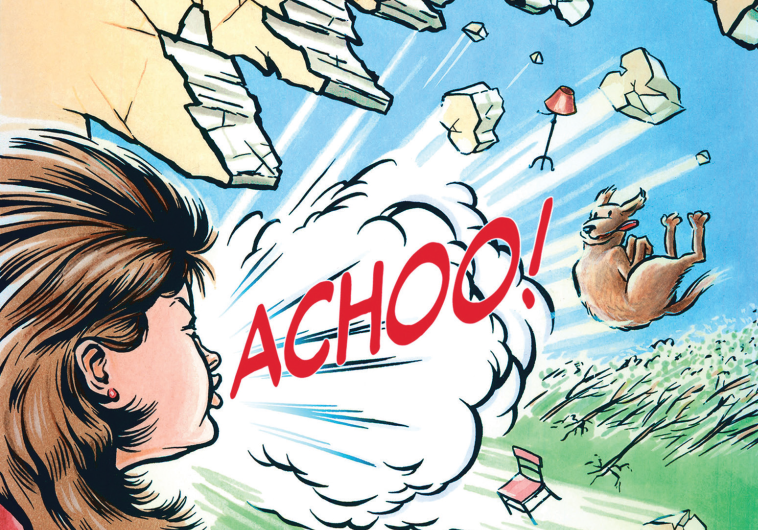Allergy experts urge taking kids with symptoms for evaluation to avoid problems as school start
The most common cause of allergic asthma in school-age children is dust mites.
 Hit’atshut: Biosemiotica Shel Hahayim Habanaliyim (The Sneeze: Biosemiotics of Banal Life)Updated:
Hit’atshut: Biosemiotica Shel Hahayim Habanaliyim (The Sneeze: Biosemiotics of Banal Life)Updated: